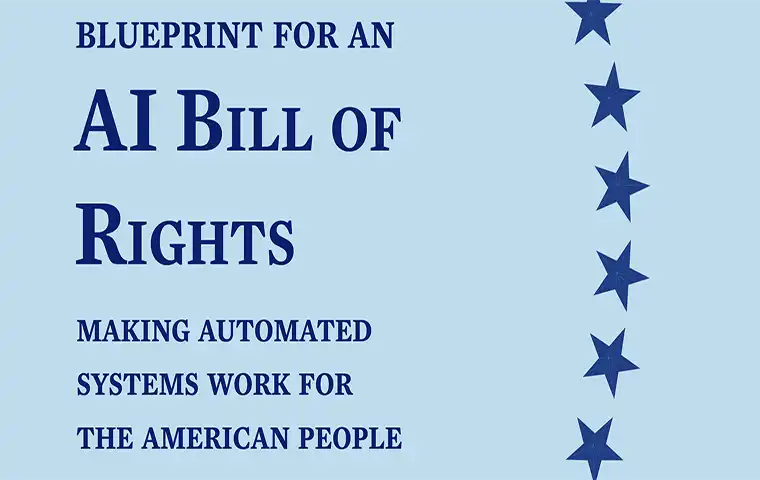The New Era of AI in 2025: From Gemini 3 to Creative AIs
Learn about the best AI tools for 2025, including Nano...
We use cookies for our website to give you the most relevant experience by remembering your preferences. By clicking “accept”, you consent to use of ALL the cookies
This website uses cookies to improve your experience while you navigate through the website. Out of these, the cookies that are categorized as necessary are stored on your browser as they are essential for the working of basic functionalities of the website. We also use third-party cookies that help us analyze and understand how you use this website. These cookies will be stored in your browser only with your consent. You also have the option to opt-out of these cookies. But opting out of some of these cookies may affect your browsing experience.
Necessary cookies are absolutely essential for the website to function properly. These cookies ensure basic functionalities and security features of the website, anonymously.
| Cookie | Duration | Description |
|---|---|---|
| cookielawinfo-checkbox-functional | 11 months | This cookie is set by GDPR Cookie Consent plugin. The cookie is used to store the user consent for the cookies in the category “Analytics”. |
| cookielawinfo-checkbox-functional | 11 months | The cookie is set by GDPR cookie consent to record the user consent for the cookies in the category “Functional”. |
| cookielawinfo-checkbox-necessary | 11 months | This cookie is set by GDPR Cookie Consent plugin. The cookies is used to store the user consent for the cookies in the category “Necessary”. |
| cookielawinfo-checkbox-others | 11 months | This cookie is set by GDPR Cookie Consent plugin. The cookie is used to store the user consent for the cookies in the category “Other. |
| cookielawinfo-checkbox-performance | 11 months | This cookie is set by GDPR Cookie Consent plugin. The cookie is used to store the user consent for the cookies in the category “Performance”. |
| viewed_cookie_policy | 11 months | The cookie is set by the GDPR Cookie Consent plugin and is used to store whether or not user has consented to the use of cookies. It does not store any personal data. |
Functional cookies help to perform certain functionalities like sharing the content of the website on social media platforms, collect feedbacks, and other third-party features.
Performance cookies are used to understand and analyze the key performance indexes of the website which helps in delivering a better user experience for the visitors.
Analytical cookies are used to understand how visitors interact with the website. These cookies help provide information on metrics the number of visitors, bounce rate, traffic source, etc.
Advertisement cookies are used to provide visitors with relevant ads and marketing campaigns. These cookies track visitors across websites and collect information to provide customized ads.
Other uncategorized cookies are those that are being analyzed and have not been classified into a category as yet.
Cyberia Tech, Inc. respects your privacy. This Privacy Policy explains how we collect, use, and share your information. By using our services, you agree to this policy. If any other agreements conflict with this Privacy Policy, the terms of those agreements prevail.
Cyberia Tech complies with the EU-US and Swiss-US Privacy Shield Frameworks for handling personal data from the EEA, UK, and Switzerland. In case of any conflict, the Privacy Shield Principles prevail. Learn more at Privacy Shield. Key Definitions
Information linked to an individual, transferred from the EEA, UK, or Switzerland to the U.S.
Data revealing race, religion, health, sexual orientation, and similar categories.
Effective Date: [ 2026 / 03 / 02 ]
Welcome to The Cyberia Tech ! By accessing or using our website or services, you agree to
comply with and be bound by these Terms of Use and our Privacy Policy. If you do not agree with
these terms, please do not use our Services.
Loading
0 %

The National Telecommunications and Information Administration is investigating the best methods for auditing AI systems. This will lead to the Ai bill of Rights recommendations for the White House and Congress as AI technology becomes more prevalent.
It’s great to hear that the US Commerce Department agency is taking steps to ensure that artificial intelligence systems are trustworthy, legal, and ethical by inquiring into the matter.
Table of Contents
it’s crazy how chatbots are just becoming a regular part of our everyday lives! Making our lives easier and more convenient. The popularity of ChatGPT is impressive and shows the potential for chatbot technology.
Many AI experts and leaders are advocating for proper guardrails to be put in place before moving forward, which demonstrates a commitment to responsible innovation.
It’s great to see that Alphabet Inc.’s Google and Microsoft Inc. have introduced their own chatbots to join the conversation alongside ChatGPT, created by research lab OpenAI. It’s great to hear that Meta Platforms Inc. introduced a bot last year!
NTIA welcomes companies, civil society groups, researchers, and the public to share their valuable thoughts and contribute to the process.
While there are concerns about AI systems perpetuating biases and spreading misinformation, there is also a growing awareness of these issues and efforts being made to address them through government and industry oversight.
We can ensure that AI technology is used ethically and responsibly with continued attention and action.

It’s great to see that NTIA is taking the lead in setting standards around AI, which is a positive step forward for the US government. It’s great that the White House published a blueprint for an “AI Bill of Rights” last year, prioritizing privacy protections, safety measures, and non-discrimination checks.
The National Institute of Standards and Technology has released voluntary AI guidance to encourage developers to implement checks on their systems, which will help improve public trust in the technology. It’s great to hear that the Federal Trade Commission is taking a proactive approach to ensure consumer protection and fair competition in the AI industry.
NTIA has the opportunity to improve its performance and make the most of its authority in this administration.
Over the past eight years, it has become increasingly necessary for governments, citizens, and enterprises to find solutions to problems related to the Responsible Use of AI.
Approximately 60 nations have national AI strategies, and many more have or are developing policies to promote the ethical application of a technology that has the potential to benefit society greatly but, without proper oversight, might cause irreparable harm to individuals and communities.
As of its public release, the Blueprint consists of the following five principles, each of which is accompanied by a technical companion that gives direction for the principle’s responsible implementation:
Finally, the US government is taking steps to ensure that artificial intelligence systems are reliable, legal, and ethical. The National Telecommunications and Information Administration is researching the best ways to audit AI systems.
The White House has produced an “AI Bill of Rights” blueprint that prioritizes privacy safeguards, safety precautions, and anti-discrimination checks. While there are concerns that AI systems would perpetuate prejudices and propagate misinformation, government, and business supervision attempts are being made to address these concerns.
It’s encouraging to see that businesses, civil society organizations, scholars, and the general public are encouraged to express their valued perspectives and participate in the process. AI technology can be used ethically and responsibly with constant attention and action.
Over the course of two years, the European Union has been working on what promises to be a ground-breaking piece of legislation: the Artificial Intelligence Act. Members of Congress have proposed a system to categorise AI products from low to unacceptable danger.
What are the ethics of the AI Bill of Rights?
No automated system should ever put your safety or the safety of your community in jeopardy, either intentionally or unintentionally. They should be made such that you are protected from harm in the event of predictable but unforeseen consequences of using automated systems.
Will AI be given human rights?
Simply put, they are still machines even if they manage to pass the Turing Test. Even if they are intelligent enough to seek rights, they should not be granted them since they are not live creatures.
What will happen if AI replace humans?
It’s more likely that AI will alter the character of employment in many sectors than it will entirely replace human labour. It’s possible that as AI develops, humans may be liberated from mundane, manual labour in favour of more intellectual, imaginative, and strategic pursuits.
You Can Get More Information!
